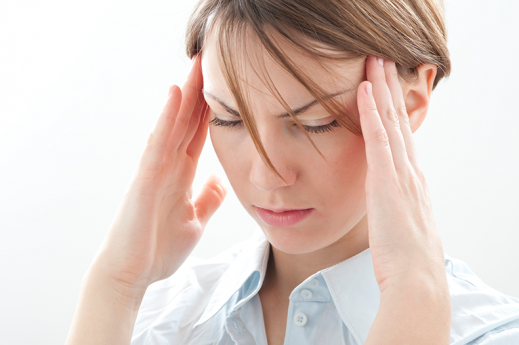Many of us become dizzy from time to time. You stand up too quickly and feel dizzy. You skip lunch and feel lightheaded by late afternoon.
Sometimes, the lightheadedness may be so strong you feel like you’re going to pass out. Dizziness is a catch-all term used to describe many feelings of being lightheaded or off-balance. Usually, it’s a minor issue that resolves when you lie down. However, if you have other symptoms that accompany the dizziness, it may be a sign of something more serious.

Never Miss a Beat!
Subscribe to Our HealthBeat Newsletter!
Thank you for subscribing!
You can now select the specific newsletters you'd like to receive.
You are already subscribed.
Subscribe to more newsletters in our email preference center.
Sorry, an error occurred. Please try again later.
Get Healthy Tips Sent to Your Phone!
Causes of Dizziness
Sometimes, dizziness is used to describe vertigo, a motion and balance issue usually caused by an inner ear disorder. Vertigo is a feeling that you’re standing still but the world around you is spinning or tilting. Both vertigo and dizziness can cause nausea or vomiting when severe.
Occasional dizziness can be caused by:
-
A quick drop in blood pressure (like when you stand up too fast)
-
Allergies
-
Illness or infection
-
Heavy periods
-
Some medications
-
Anemia (low iron)
Alcohol and tobacco can also cause you to feel lightheaded from time to time. Changing your diet, drinking more water, and treating any illnesses or allergies may help resolve your symptoms.
How to Tell When Dizziness May Be Serious
Dizziness alone is often not much cause for concern, especially if it passes after a few moments. However, if you experience additional symptoms or fainting, you should talk to your doctor.
If you experience vomiting, double vision, or trouble using your arms or legs, you should get immediate medical attention. In fact, lightheadedness, along with shortness of breath, back pain, and fainting, are more common signs of heart attack in women than chest pain.
Other signs that your dizziness might be a sign of something more serious:
- Chest pain
- Fever
- Shortness of breath
- Trouble walking
- Falling
- Stiff neck
- Signs of a stroke
Preventing Dizziness
Leading a healthy lifestyle, limiting smoking, and maintaining a healthy weight can help lessen the feeling of dizziness and help prevent more serious problems. Make sure you talk with your doctor if you regularly experience dizziness and to share exactly what the sensation feels like. The more detail your doctor has, the better he or she will be able to detect any underlying issue.
About Ear Nose and Throat
The experts in the UPMC Department of Otolaryngology treat a variety of ear, nose, and throat (ENT) conditions in both children and adults. Our team includes board-certified physicians and highly skilled speech-language pathologists and audiologists. We provide both surgical and nonsurgical treatment options. Our research and clinical trials help to advance care for our patients. Find an ENT expert near you.
